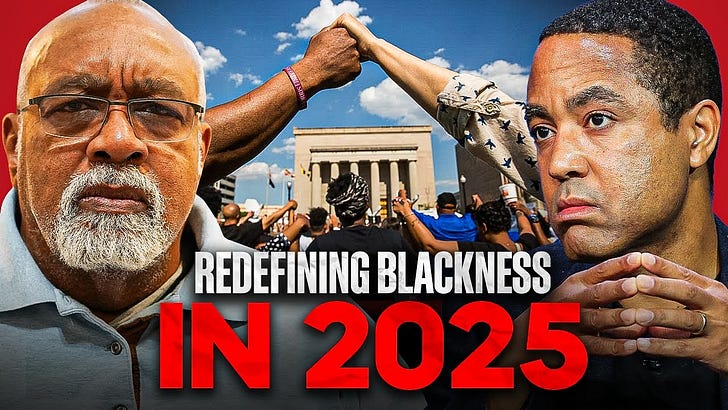I’m back again with my good friend John McWhorter for another edition of our ongoing biweekly conversation. In this edition, we discuss three heavy subjects: our respective fields’ changing attitudes toward us, the killing of Jordan Neely, and reparations. Despite the political and existential weightiness, we manage to retain our good humor.
I begin by telling John that, in preparation for my upcoming retirement from academia, I’m packing up my books and vacating my beautiful office at Brown. This leads us to reflect on the ways that our public stances on race have led certain sectors of our fields—linguistics and economics—to ignore and even disown us. We then move on to the sad case of Jordan Neely, an apparently mentally ill black man killed by ex-Marine Daniel Penny on the NYC subway. As John says, Neely didn’t deserve to die, but he likely did pose a threat to those around him. How should we deal with aggressive homeless and mentally ill people who, to put it frankly, scare the hell out of ordinary people who are just trying to go about their business? And finally, it looks like some cities are closer than ever to disbursing reparations payments—in cash and other benefits—to black Americans. You won’t be surprised to know that I think this would be disastrous for all involved. But John has a slightly different take.
As always, I’m looking forward to reading your comments.
This post was released on Monday to paying subscribers and is now unlocked. To receive early access to TGS episodes, an ad-free podcast feed, Q&As, and other exclusive content and benefits, click below.
Featured Content from City Journal
The latest NAEP scores show that the nation’s youth are painfully ignorant about U.S. history and civics, highlights Larry Sand.
0:00 John: “I love linguistics, but it no longer loves me”
9:44 How Glenn and John are getting written out of their fields
19:37 Jordan Neely didn’t deserve to die …
27:28 … but the New York subway is getting scary
37:45 Glenn: Reparations would be “impractical, unfair, and divisive in the extreme”
50:50 A possible left-wing objection to reparations
57:22 Glenn goes ham on reparations
Recorded May 18, 2023
Links and Readings
Steven Pinker’s book, The Language Instinct: How the Mind Creates Language
John’s book, Talking Back, Talking Black: Truths about America’s Lingua Franca
John’s book, Word on the Street: Debunking the Myth of “Pure” Standard English
John’s language podcast, Lexicon Valley
John, Our Magnificent Bastard Tongue: The Untold History of English
John’s NYT piece about Jordan Neely, “A Killing on the F Train”
Ta-Nehisi Coates’s 2014 Atlantic essay, “The Case for Reparations”
Matthew Desmond’s book, Evicted: Poverty and Profit in the American City
Matthew Desmond’s new book, Poverty, by America
Glenn’s conversation with Norman Finkelstein
August Wilson’s play, Two Trains Running














Share this post